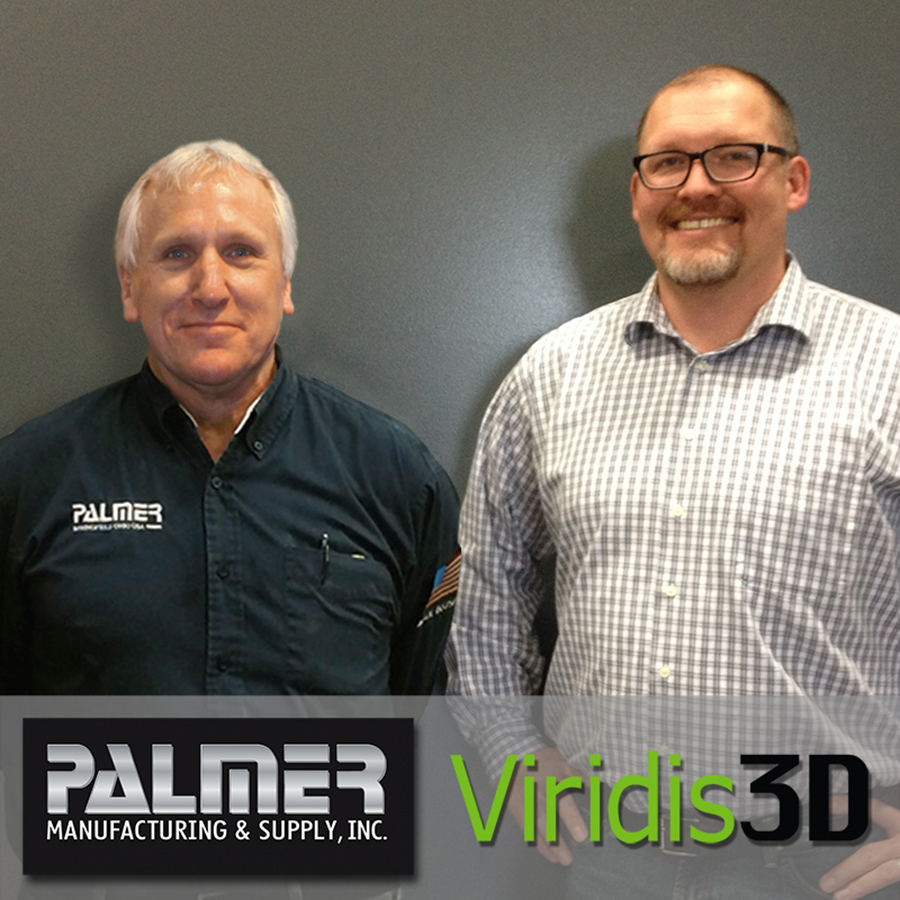It is easy to get carried away by all the incredible news that populates the 3D printing world daily: bioprinted organs, distributed manufacturing, entire cars and houses. While these are all amazing and very possible goals for the longer run, the truth is that today the sector that 3D printing is affecting most is industrial manufacturing, by offering faster ways to make moulds, prototypes and parts.
The new partnership signed by Springfield, Ohio based Palmer Manufacturing & Supply with Woburn, Massachusetts, based Viridis3D seeks to further disrupt the mould making industry by introducing the first robotic arm sand-based 3D Printer System developed to manufacture moulds and cores using less material and at a significantly lower operational cost than any other 3D printer on the market. The new system is targeted at all foundries in North and South America and the two companies are currently accepting a limited number of foundries as beta testing sites.
“This printer currently has ‘patents pending’ and is a game-changer in terms of producing only what you need – only when you need it,” said William Shambley, President of Viridis3D, a company that has evolved into an all-inclusive supplier of additive manufacturing technology for making sand molds/cores for green sand, no-bake and investment casting and ceramics. “We are proud to have developed the first robotic sand based system to take a CAD file to print a mold and core and have a casting in literally a few hours,” he added.
According to the joint statement released by the two companies, the new system is capable of delivering both moulds and cores at unprecedented speed, complemented by extremely easy to access one-touch software for managing all 3D printing operations. The companies have turned to ABB as robot partner while Palmer will be providing the heavy duty peripherals to complete the system and include heavy-duty mixers, powder feeders and system controls.
“Robotic 3D Printing truly defines lean manufacturing,” said Jack Palmer, President of Palmer Manufacturing & Supply. “This technology brings a new way of production – instead of shipping castings around the world; raw materials are shipped and files are simply transmitted to 3D printers in strategic locations. The result is castings are poured the same day, only where you need them. This is a flexible and efficient production system unlike anything we have ever seen before – it is truly revolutionary.”
For some of the most hardcore 3D printing and personal manufacturing fans out there, moulds and cores may not sound as magical and revolutionary but the truth is that 3D printing is truly and radically changing manufacturing, starting from the companies who today make up the 20 trillion dollar global manufacturing sector.



